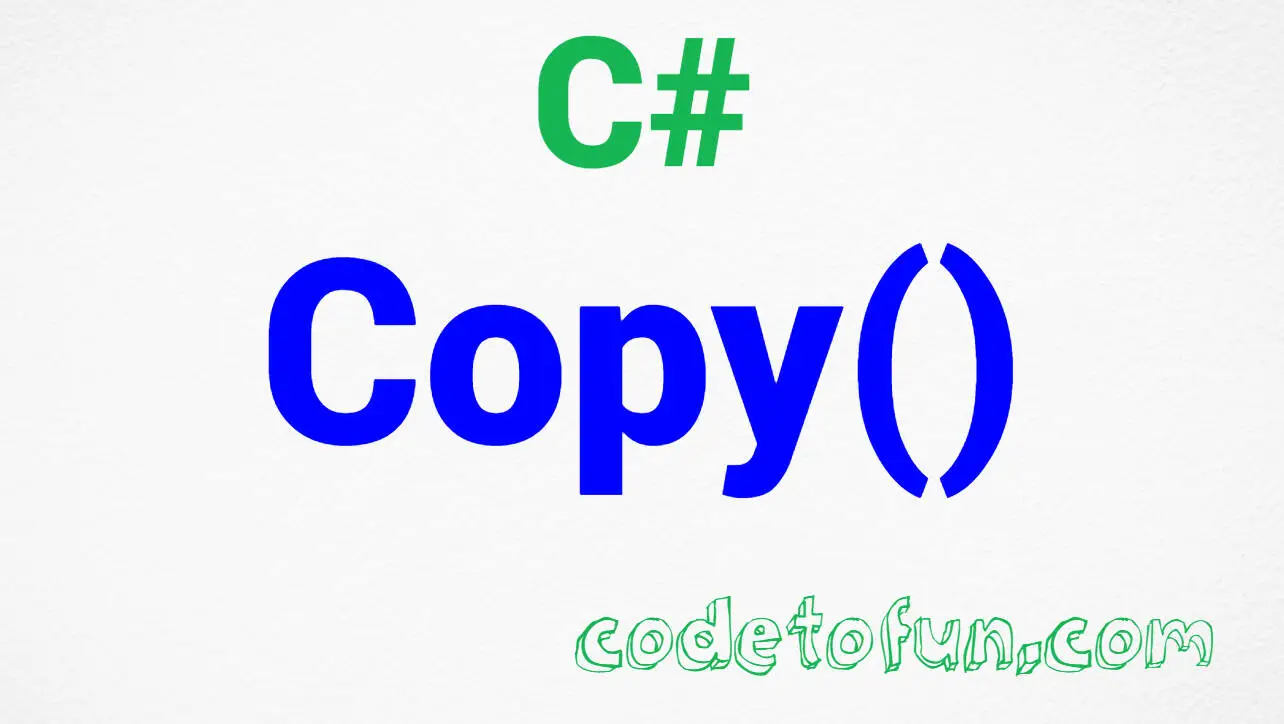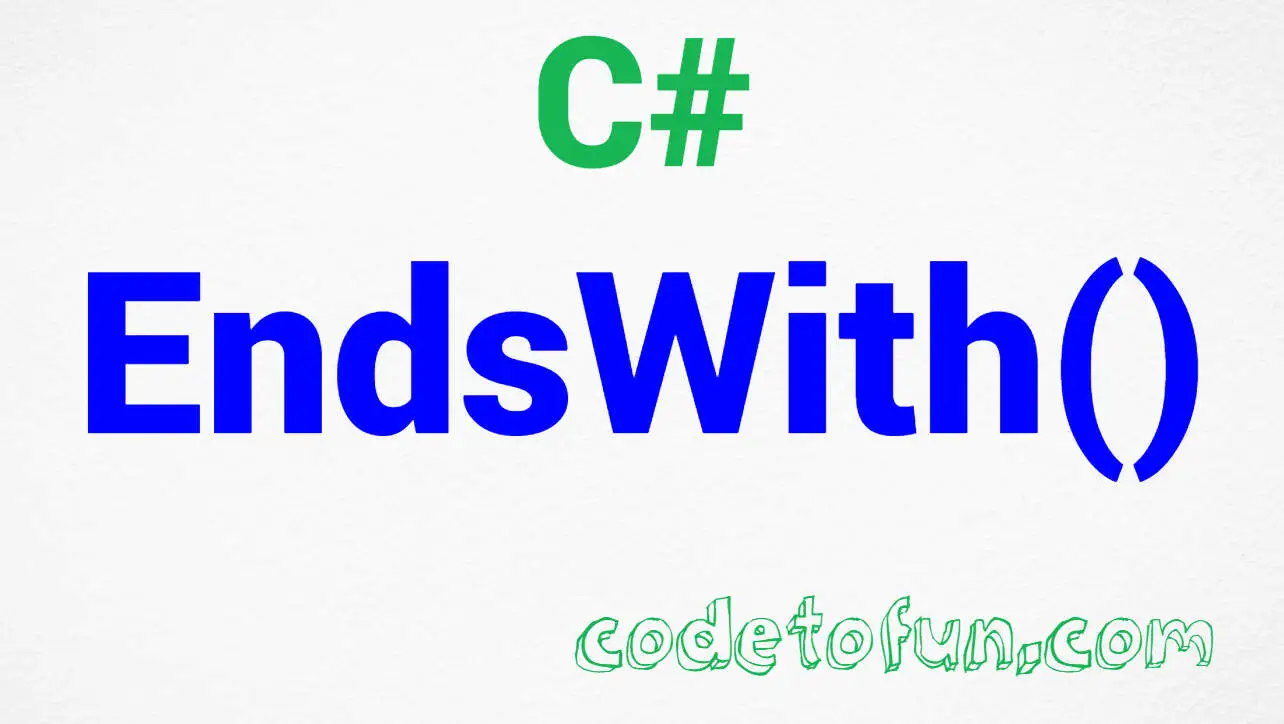
C# Basic
C# String EndsWith() Method

Photo Credit to CodeToFun
🙋 Introduction
In C# programming, working with strings is a common and essential task.
The EndsWith() method is a member of the System.String class and is used to determine whether the end of the string instance matches a specified substring.
In this tutorial, we'll explore the usage and functionality of the EndsWith() method in C#.
💡 Syntax
The syntax for the EndsWith() method is as follows:
public bool EndsWith(string value);- value: The substring to compare.
The method returns a bool value, indicating whether the string ends with the specified substring.
📄 Example
Let's dive into examples to illustrate how the EndsWith() method works.
using System;
class Program {
static void Main() {
string sampleString = "Hello, World";
// Check if the string ends with "World"
bool endsWithCSharp = sampleString.EndsWith("World");
Console.WriteLine($"Example 1: {endsWithCSharp}");
// case-insensitive check
bool endsWithWorld = sampleString.EndsWith("world", StringComparison.OrdinalIgnoreCase);
Console.WriteLine($"Example 2: {endsWithWorld}");
}
}💻 Testing the Program
Example 1: True Example 2: True
🧠 How the Program Works
In Example 1, the EndsWith() method is used to check if the string "Hello, World" ends with the specified substring World.
In Example 2, a case-insensitive check is performed to see if the string ends with the substring world.
↩️ Return Value
The EndsWith() method returns true if the string instance ends with the specified substring; otherwise, it returns false.
📚 Common Use Cases
The EndsWith() method is particularly useful when you need to perform conditional logic based on the ending characters of a string. It's commonly used in scenarios where you want to check file extensions, domain names, or specific patterns.
📝 Notes
- The comparison is case-sensitive by default, but you can use overloads that allow you to specify whether the comparison should be case-insensitive.
- If the specified substring is an empty string, the method returns true.
🎢 Optimization
The EndsWith() method is optimized for efficiency, and no specific optimizations are typically needed. If you're performing multiple checks with the same substring, consider storing the result in a variable to avoid redundant computations.
🎉 Conclusion
The EndsWith() method in C# provides a straightforward way to check whether a string ends with a specific substring. It's a valuable tool for string manipulation tasks and conditional logic.
Feel free to experiment with different strings and substrings to deepen your understanding of the EndsWith() method. Happy coding!
👨💻 Join our Community:
Author

For over eight years, I worked as a full-stack web developer. Now, I have chosen my profession as a full-time blogger at codetofun.com.
Buy me a coffee to make codetofun.com free for everyone.
Buy me a Coffee











If you have any doubts regarding this article (C# String EndsWith() Method), please comment here. I will help you immediately.